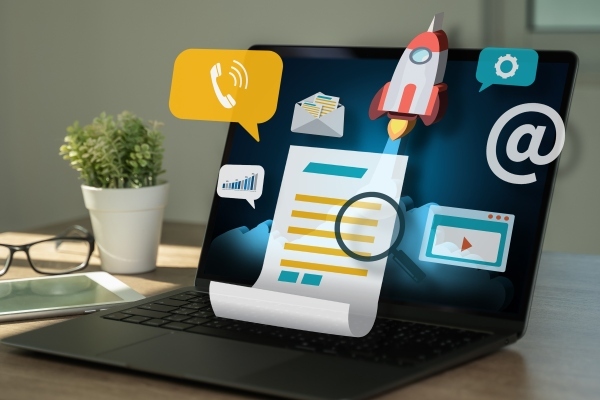
How NOT to waste time and regain control
So you get into the office and switch on your computer, what is the next thing you do? Check your email maybe, have a little nose on Facebook or Twitter. So many of us find our day being dictated by what we find in our inbox, constant interruptions from others and lack of planning. So much so that it’s easy to get to the end of the day and realise that whilst you have been ‘busy’ you haven’t achieved anything you wanted to.
Partly it’s down to the fact that we are a helpful and reactionary bunch. It’s so easy to answer that quick email then have to respond to the one that comes back. Answer that phone call that means you are then late for a meeting that you didn’t really need to be at in the first place.
How often do you finish your day feeling frazzled and out of control? This not only leads to an un-productive day but can have a serious impact on your health too. Taking back control and making and keeping to your own agenda isn’t as hard as you might think it is.
Email is fast becoming a nuisance and with a lot of businesses doing away with email all together and moving towards more collaborative tools such as Slack it may become a thing of the past. But whilst it still features heavily in your working day here are some tips to avoid being a slave to it:
- Only check your email at set times during the day and NEVER deviate from it.
- Make sure you have completed your most important task of the day before you open your email.
- Don’t leave your email client open, the temptation to just have a sneaky peak will be too much to bare.
- Remove work e-mail from your phone or if that’s not possible have a separate phone for outside of work and switch your work phone off in your leisure time.
- Use auto-responders whilst you are on holiday and never check your email whilst away. Once people get used to you always being available they will come to expect it.
Having a plan
Have a to-do and a not-to-do list. Give yourself just one or 2 priority tasks to complete each day and do nothing else until it is done. Use a tool like Wunderlist that allows you to move tasks around, categorise them and prioritise the ones that are really important.
Book out blocks of time in your diary each morning to focus on those tasks and make sure your colleagues know that you aren’t to be interrupted AT ALL, EVER (unless the building is on fire). If this becomes impossible for people, build a case for coming into work later and getting those all important tasks done at home before you leave. Or, alternatively work from home a few days a week and use your 2 days in the office to focus on admin and meetings.
Train the people around you
People will quickly adapt to your new work habits; they will learn not to call at a certain time of day. They will know that if they email you they won’t get a response immediately. Don’t let other people dictate your day. You will be far more productive and add far more value to the business when you manage your own time.
Explain to people the changes you are making and the reasons why. You might even find others follow suit when they see you achieving your goals!
Avoid distractions
The biggest culprit of time wasting is getting distracted, so why not plan that time in so you can indulge in your candy crush habit guilt free? Once you have your schedule set out and you are consistently achieving your goals then no one will care if you take 10 minutes to wander round the office, in fact it’s good for you to take a break like this. Go for a walk, spend time on social media whatever it is that floats your boat. BUT schedule it in, and stick to it.
If you find you have days where you can’t settle, where you find yourself flitting around and not really achieving anything. Move your original plans and spend the day on admin tasks, filing, catching up with colleagues. It’s fine to do this now and again and you shouldn’t feel guilty for it (as long as it’s not an everyday occurrence of course).
Use technology where relevant
Technology is wonderful, there are so many tools out there which are designed to help you manage and save time. Do some research and play around with some of them, find the ones that work for you. But if you find them creating additional work or you simply don’t get on with them, ditch it and go back to pen and paper.
I love Wunderlist but I also find it too easy to delete things out of there, so I always write my two big tasks on paper. There is nothing quite like the satisfaction of ticking them off at the end of the day! Find what works for you.
So what are you waiting for?
It can seem overwhelming to try and completely overhaul everything in one go. If you are really serious about changing the way you work and feeling like you have control back again then pick one thing to change. Once that change becomes a habit then move on to something else.





